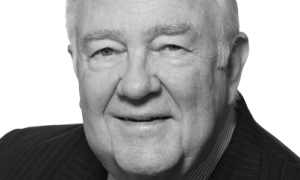In early December 1966, I found myself in the Transition Office in Sacramento, Calif., waiting for the governor-elect. I had never met the man.
Ronald Reagan entered the room, gave an expansive greeting to all the old hands gathered there, then turned to me. He invited me into a small conference room he was using as a makeshift office.
There, we talked for half an hour. In that brief period of time, he impressed me tremendously, both by his friendliness and also by how much he knew about criminal justice (a field I knew quite well).
He had a number of ideas on how to deal with California's public safety issues, which ranged from dealing with the large number of people awaiting capital punishment to the increasingly destructive uprisings and demonstrations on California's campuses. I was amazed at how closely his ideas coincided with mine.
At the end of the interview, Reagan offered me a job as extradition and clemency secretary (which later became legal affairs secretary). Thus began a friendship and working relationship that lasted more than 30 years.
When he was first elected, pundits constantly questioned whether an actor could possibly become a successful governor of the largest state in the union. They, and I, soon learned how capable Reagan was.
Shortly after beginning work in the governor's office, I was given the responsibility of briefing him before he held his first meeting with the state's leading sheriffs and chiefs of police. I carefully prepared a memorandum containing the talking points I thought might be most useful for that meeting.
I took them in to him just before the meeting; he read them, and we then walked down the hall to the conference room. To my dismay, he left the memorandum sitting on his desk. But my concern was quickly relieved as he proceeded to give a 20-minute speech, without notes, in which he masterfully integrated all of the points I had suggested. It was an example of Reagan's ability to combine impressive knowledge and great communication skills.
Two years later, I became Reagan's chief of staff. My appreciation of his capabilities continued to grow as he became one of the most successful governors in the history of California.
After several years of informing the people about his philosophy and his vision of America, he campaigned for the presidency at a moment of crisis in both domestic and foreign affairs. His prescription for ending the unprecedented "stagflation" of the Carter era and for dealing with the Soviet Union constituted a major change from existing policy. Yet his call for a "New Beginning" resonated with the public, and he was elected the 40th president of the United States.
Reagan was always underestimated by his friends and by his opponents. He actually believed that was an advantage. Many political opponents thought he would be an easy mark. But his overwhelming victories in the four elections he won revealed the folly of such suppositions.
Reagan was friendly to all that he dealt with. He had no "secret persona" for those close to him. He was the same man whether talking to top staff members in the Oval Office or when addressing 10,000 people at a political rally. His integrity and sincerity were obvious -- one reason he was so genuinely admired by the American people.
It was also a tremendous source of strength for those of us who worked for him. At every stage of his political career, we were confident he would fully support us if we did the right thing. In the first Cabinet meeting after his inauguration, he stated that what he wanted to hear from us was the truth and what was right to do for the American people. Politics, he insisted, should never color our advice.
With that principled approach to the presidency, he won the confidence and approval of the American people. His leadership and his optimism concerning our nation's future remain hallmarks of his time in office.
At the end of his presidency, Reagan summed up his eight years in the White House by saying: "We came to change a nation, and we changed the world." Being part of that effort and serving under Ronald Reagan was the greatest privilege of my life.
Edwin Meese III was counselor to President Reagan and subsequently served as attorney general.
First appeared in The Examiner



